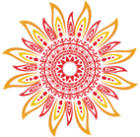 As practitioners of Chinese Medicine, we view infertility as an imbalance of Qi and blood affecting one or more of the organ systems. In studies reviewed by Weill Cornell Medical Center in New York*, researchers concluded that Acupuncture helps to:
As practitioners of Chinese Medicine, we view infertility as an imbalance of Qi and blood affecting one or more of the organ systems. In studies reviewed by Weill Cornell Medical Center in New York*, researchers concluded that Acupuncture helps to:
- Increase blood flow to the uterus to improve the chances of ovum implantation.
- Reduce anxiety and stress that may significantly decrease fertility.
- Normalize the hormone and endocrine systems that regulate ovulation, especially if Polycystic Ovarian Syndrome is an issue.
- Positively affect the hypothalamic-pituitary-ovarian axis that plays a key role in fertility.
- Regulate the menstrual cycle.
To conceive and have a healthy pregnancy, you must have a free flow of Qi and blood throughout the body. An adequate supply of blood is required by a woman’s body to sustain a normal menstrual cycle, to successfully implant an embryo within the uterine lining, and to support a growing fetus and a healthy pregnancy.
Through Acupuncture and Herbal Medicine, we can raise your fertility potential by affecting the quality, quantity, balance, and flow of Qi and blood.
Treatment of infertility with Chinese Medicine dates back 2000 years with techniques that improve fertility rates and support a woman’s whole body, unlocking unlimited potential for health, healing and childbearing.
Fertility Types:
DRY
SYMPTOMS:
Dry skin, eyes, and hair
Often thirsty
Thin
Tends to be constipated
Often feels hot: flushes easily, night sweats
Short cycles or light periods
Insomnia
Often restless, fidgety, jumpy, or anxious
WESTERN MEDICINE:
Estrogen and progesterone imbalances, particularly estrogen
Elevated FSH
Recurrent miscarriages
Poor response to stimulation drugs
TCM PERSPECTIVE:
The Traditional Chinese Medicine (TCM) name for this type is kidney “yin” deficiency. Yin describes the functions of the body that are cooling, nourishing, moistening, and substantial. Without enough yin, the body gets hotter and dries out. This is reflected in low estrogen levels, thinner uterine lining, and less cervical fluid. Yin naturally depletes with age, but some people use up their yin faster with energy-consuming lifestyle choices: not enough sleep, eating poorly, and exercising in short, intense bursts.
ADVICE:
Hydrate
Consume nutrient-rich foods: dark leafy greens, soy products
(for phytoestrogens), healthy fats
Avoid alcohol and spicy foods
Reduce stress
Avoid excessive aerobic exercise: try yoga, tai chi, or qi gong
SUPPLEMENTS:
Essential fatty acids
L-carnitine
Royal jelly
Liquid chlorophyll
TIRED
SYMPTOMS:
Often feels weak or lethargic
Prone to getting sick
Gets out of breath and sweats easily, gains weight
Poor appetite
Prone to bloating, gas, and loose stools
Low sex drive
Short luteal phase
Feels cold: hands, feet
WESTERN MEDICINE:
Hypothyroid
Low progesterone
Luteal phase defect
Metabolic disorders
TCM PERSPECTIVE:
This type is called kidney “yang” deficiency in TCM, and reflects a broader hormonal imbalance going beyond reproductive hormones and encompassing the thyroid, adrenals, and pituitary gland. Weakness in these systems affects metabolism, circulation, and thus reproduction.
ADVICE:
More animal Protein
Avoid raw and cold foods
Alcohol in moderation
Consume warming soups and stews, and spices: cinnamon,
ginger, cayenne, turmeric, cardamom, cloves, cumin
Regular moderate exercise
SUPPLEMENTS:
Royal jelly
Wheat grass
Chromium (boosts metabolism by enhancing the action of insulin)
L-arginine
Chasteberry (helps sustain post-ovulatory progesterone)
PALE
SYMPTOMS:
Physically pale
Nails chip easily
Vision problems
Hair loss
Lighter or missed periods
Trouble falling asleep; tired
Physically inflexible
Undernourished (vegetarians and vegans are often Pale)
WESTERN MEDICINE:
Amenorrhea
Thin endometrium
TCM PERSPECTIVE:
Pale people are considered to have blood deficiency, which can reflect anemia or more minor undernourishment. The blood nourishes the endometrium, making it a welcoming, healthy home for an embryo. Sometimes blood deficiency is caused by anemia, but it can also be caused by poor diet or heavy periods.
ADVICE:
Regular meals of nutritional foods
Iron from plant and animal sources
Foods rich in vitamin C (to help the absorption of iron)
Lots of plant and/or animal protein
SUPPLEMENTS:
Wheat grass or liquid chlorophyll
Floradix (iron with herbs)
L-carnitine
STUCK
SYMPTOMS:
Stressed out, easily angered
Tension headaches, nervous stomach, high blood pressure, or muscle tightness
PMS Symptoms including breast tenderness and mood swings, painful periods, irregular cycles, clotted menstrual blood.
WESTERN MEDICINE:
Endometriosis
Fibroids
Uterine polyps
PMS
Mittelschmerz (pain during mid-cycle)
TCM PERSPECTIVE:
The tightness of the Stuck type stems from poor energy and blood flow throughout the body, or what is referred to as qi and blood stagnation. Over time, it can lead to stagnation in the reproductive system, which can cause ovulation problems and inflexible fallopian tubes. Blood stagnation can cause painful or stop-and-start periods, and can lead to reproductive system obstructions such as endometriosis, fibroids, polyps, and cysts.
ADVICE:
Regular aerobic exercise
Plenty of fiber
Stress reduction
Hot water with lemon in the morning
Complex carbohydrates
Avoid soy products
Avoid alcohol
SUPPLEMENTS:
Zinc (especially premenstrual)
B-complex vitamins
Magnesium
Calcium
WATER LOGGED
SYMPTOMS:
Problems metabolizing fluids (swelling, inflammation)
Painful joints, aching legs, or headaches.
Craves sugar
carries excess weight
Obesity, heart disease, and diabetes are common
Sinus and lung congestion, asthma, allergies
WESTERN MEDICINE:
Chronic yeast infections
Metabolic disorders
PCOS (polycystic ovary syndrome)
PID (pelvic inflammatory disease)
TCM PERSPECTIVE:
This type is called “phlegm damp” in TCM, where the body produces excess fluids and mucus. Stagnant fluids lead to poor transitions, including the many tricky hormone shifts involved in the menstrual cycle, conception and implantation. This type might have excessive vaginal discharge or cervical inflammation, and my be prone to reproductive system obstructions.
ADVICE
Exercise
Limit dairy
Avoid alcohol, sweets, and greasy foods
Avoid soy, especially if you have endometriosis or fibroids
Keep your environment mold-free
SUPPLEMENTS:
Chromium
Pro-biotic
Fertility types are discussed in full in Jill Blakeway’s book, “Making Babies”
